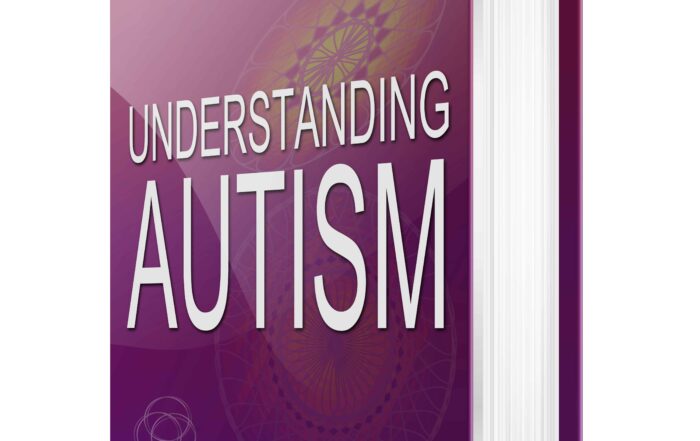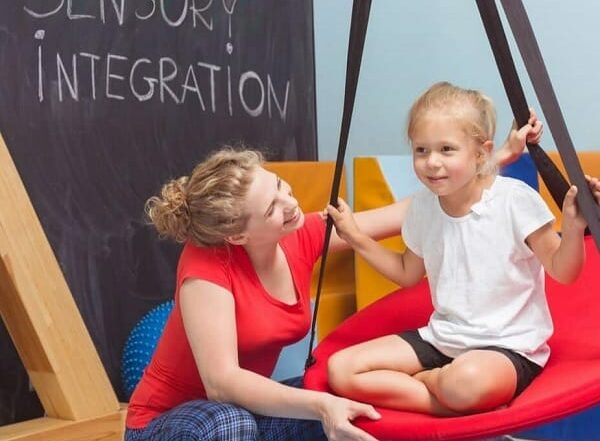Dara S. Manoach, Ph.D., discusses research updates on autism and sleep. She outlines aspects of a good night’s sleep and emphasizes the role of sleep cycles in cognition, memory, and learning. The speaker considers how to treat neurodevelopmental disorders by targeting sleep spindle rhythms which affect thalamocortical neuronal loops, essential to memory and attention. Manoach outlines how spindle rhythms correlate to memory consolidation during sleep in schizophrenia and autism, and highlights technological advancements that allow for broader sample sizes and more accessible studies. The presenter notes potential treatment goals and ongoing research before the Q&A.
In this webinar:
1:15 – A good night’s sleep
4:15 – The role of sleep in memory and learning
6:40 – Motor sequence tasks (MST)
9:23 – Sleep spindles and memory consolidation
14:30 – Thalamocortical circuitry
17:30 – Genetic underpinnings
22:20 – Sleep in autism
27:00 – Sleep-dependent memory consolidation in autism
29:00 – Ongoing work
35:15 – Accessibility and sample size
40:25 – Treatment goals
43:15 – Q&A
A good night’s sleep
Manoach explains that a night’s sleep is divided into REM and non-REM cycles, with non-REM further divided into three stages based on slow-wave activity. The speaker’s research focuses on non-REM Stage 2 sleep, which occurs in the early morning and is characterized by sleep spindle brain rhythms (1:15). Manoach considers how sleep affects cognition, highlighting that critical aspects of learning and memory occur during sleep (2:15). She cites ancient references to the interaction of memory and sleep (Quintilianus, 95 AD) and highlights a 2001 study that kicked off the current explosion in sleep and memory research (3:10).
- Sleep, Learning, and Dreams: Off-line Memory Reprocessing (Stickgold et al., 2001)
Sleep, memory, and learning
The presenter cites studies showing that sleep prioritizes memory for emotional information and helps extract the main point of an idea or experience. Sleep also increases spatial navigation and facilitates language learning in infants (4:25). The speaker asserts that this body of work has led to a paradigm shift in understanding sleep as an active period of cognitive functioning that facilitates learning and memory (6:00).
- The role of sleep in declarative memory consolidation: passive, permissive, active or none? (Ellenbogen et al., 2006)
- Sleep Preferentially Enhances Memory for Emotional Components of Scenes (Payne et al., 2008)
- Dreaming of a Learning Task Is Associated with Enhanced Sleep-Dependent Memory Consolidation (Wamsley et al., 2010)
- Sleep inspires insight (Wagner et al., 2004)
- The Sleeping Infant Brain Anticipates Development (Friedrich et al., 2017)
The speaker describes finger-tapping motor sequence tasks (MST) in which participants use a keyboard to type a number sequence as quickly and accurately as possible. The following day, they complete the MST again to test learning improvements after a night of sleep (6:40). Research shows significant improvement in MST results after 12-hour intervals with a sleep sequence (7:45). Time of MST training (10 AM vs 10 PM) did not affect following day outcomes, and a 12-hour interval with no sleep cycle did not yield performance improvements (8:15). These findings, Manaoch asserts, emphasize the critical role of sleep in memory and learning.
- The acquisition of skilled motor performance: Fast and slow experience-driven changes in primary motor cortex (Karni et al., 1998)
- Practice with Sleep Makes Perfect (Walker et al., 2002)
Sleep spindles and memory consolidation
MST studies in people with schizophrenia show a normal amount of learning during training. However, after a night of sleep, MST performance did not significantly improve, meaning that individuals with schizophrenia do not get the same benefits from sleep as their peers (9:23). The speaker notes that this failure of overnight improvement occurred in the context of significantly reduced sleep spindles, which are a critical mechanism of memory consolidation (10:00). Manoach states that memory consolidation deficits are also characteristics of autism, though the link has been better established in schizophrenia literature (12:17).
The presenter outlines her research model, highlighting the importance of forging empirical links in causal chains across genes, circuits, physiology, cognition, diagnosis, and treatment (13:04). She describes brain spindles as a rhythm of Stage 2 non-REM sleep, which is recorded on an EEG as one-to-two-second bursts of brain activity. Spindles are initiated in the thalamus and sent to the cortex via thalamocortical neuron loops (e.g., bursts of brain activity), regulated by the thalamic reticular nucleus (TRN). The TRN is essential for sensory gating, or filtering out sensory inputs. Manoach asserts that spindle deficits in schizophrenia suggest a problem in this circuitry related explicitly to TRN modulation (12:50).
- A failure of sleep-dependent procedural learning in chronic, medicated schizophrenia (Manoach et al., 2004)
- Reduced Sleep Spindles and Spindle Coherence in Schizophrenia: Mechanisms of Impaired Memory Consolidation? (Wamsley et al., 2012)
She cites research showing that dysfunctional thalamocortical circuitry can lead to attention fragmentation and impaired sensory gating in schizophrenia (14:30). Studies also show hyperconnectivity between the thalamus and motor sensory cortex associated with spindle deficits. Therefore, she asserts that research to date suggests decreased spindles and increased connectivity reflect the same thalamocortical circuit dysfunction in schizophrenia (16:00).
- The thalamic reticular nucleus: structure, function, and concept (Pinault, 2004)
- Oxidative stress-driven parvalbumin interneuron impairment as a common mechanism in models of schizophrenia (Stuellet et al., 2017).
- Disorders of attention and perception in early schizophrenia (McGhie & Chapman, 1961)
- Translational utility of rodent hippocampal auditory gating in schizophrenia research: a review and evaluation (Smucny et al., 2015)
- Increased Thalamocortical Connectivity in Schizophrenia Correlates With Sleep Spindle Deficits: Evidence for a Common Pathophysiology (Baran et al., 2019)
Genetic underpinnings
Manoach cites two animal model studies that found spindle deficits in mice with schizophrenia risk gene CACNA1I. Spindle deficits were correlated with reductions in thalamocortical circuitry (17:30). The speaker explains that autism risk genes, like PTCHD1, are also implicated in TRN dysfunction and have been correlated with spindle reduction and reduced visual gating leading to fractured attention in animal models. These data, she asserts, directly link gating issues to attention deficits and spindle dysfunction (19:40). She explains how TRN mutations in early development can predispose individuals to neurodevelopmental conditions like autism (21:15).
- A rare schizophrenia risk variant of CACNA1I disrupts CaV3.3 channel activity (Andrade et al., 2016)
- Effects of a patient-derived de novo coding alteration of CACNA1I in mice connect a schizophrenia risk gene with sleep spindle deficits (Goshal et al., 2020)
- Thalamic reticular impairment underlies attention deficit in Ptchd1Y/− mice (Wells et al., 2016)
- New views of the thalamic reticular nucleus in the adult and the developing brain (Mitrofanis & Guillery, 1993)
- Early motor activity drives spindle bursts in the developing somatosensory cortex (Khazipov et al., 2004)
Sleep in autism
The presenter explains that 80% of autistic children experience sleep disturbances, which can exacerbate symptoms and impact daily function. She outlines a recent home-sleep EEG study that revealed autistic people had worse sleep quality than their non-autistic counterparts, specifically related to sleep latency, sleep efficiency, night wakings/arousals, and percentage of time in non-REM Stage 1 sleep (22:20). The same study also found reduced spindle rates in Stage 3 non-REM sleep and reduced thalamocortical coordination, with later and more variable spindle peaks compared to controls (24:00). These data, Manoach explains, are consistent with disruption to TRN during sleep. She hypothesizes that, as in schizophrenia, there is less gating of auditory information due to TRN deficits in autism (26:00).
- Dyscoordination of non-rapid eye movement sleep oscillations in autism spectrum disorder (Mylonas et al., 2022)
- Increased resting-state thalamocortical functional connectivity in children and young adults with autism spectrum disorder (Baran et al., 2022)
- Sensory experiences of children with autism spectrum disorder: In their own words (Kirby et al., 2014)
Sleep-dependent memory consolidation in autism
The presenter notes that MST studies in autism do not report deficits in sleep-dependent memory consolidation. Where typically developing individuals had normal spindle count, autistic participants showed an inverse number comparatively (27:00). Manoach considers the role of spindles if not memory. She posits that they may support overall sleep cycles and, therefore, spindle deficits may contribute to sleep disruption in autism (28:00).
- Dyscoordination of non-rapid eye movement sleep oscillations in autism spectrum disorder (Mylonas et al., 2022)
Ongoing work
Manaoch’s ongoing work looks at the links between sleep disruption in autism and spindle deficits, circadian disruptions, thalamocortical circuit function (gating), EEG abnormalities, and relations to sensory sensitivities. She notes a pilot study on the physiological effects of melatonin (29:00). The speaker considers the issue of small sample sizes in sleep analysis and explains how they are scaling up research with a wearable sleep headband that can be used at home, making sleep studies more accessible (30:00).
She outlines part of her lab’s work with closed-loop auditory stimulation (CLAS) during a nap, monitored by EEG (31:45). Results show that CLAS has a strong effect on slow-wave and sigma rhythms, but it did not lead to better memory in this study. However, researchers now posit that timing matters (32:45). Manoach explains that the closer CLAS occurs to a sleep upstate, the more likely it is to evoke a slow-wave and spindle creation (33:30).
- The effects of closed-loop auditory stimulation on sleep oscillatory dynamics in relation to motor procedural memory consolidation Get access Arrow (Baxter et al., 2023)
Accessibility and large sample sizes
The speaker reiterates the usability of the new sleep headbands and discusses their ongoing piloting process spanning the entire U.S. (35:15). She notes experiment preparation, procedures, and support, emphasizing the accessibility of participating from home (35:55). Preliminary data show no spindle deficits in non-REM Stage 2 or Stage 3 as a whole. However, when assessed by sex, spindle deficits are constrained to males. Manaoch considers whether other inconclusive studies have considered sex and how results may differ if they had (36:30). She notes that spindle deficits have been observed in studies with only male participants and speaks to the importance of large, diverse sample sizes. The presenter notes that study protocols and tools have been adapted for those with profound autism, citing the lack of studies in this group and the need for broader samples (37:50). She briefly describes ongoing sleep biomarker studies and outlines potential treatment goals (40:25):
- Correct thalamocortical circuit function
- Increase spindles or improve coordination
- Improve sensory gating
- Restore sleep
- Support the daily life of those with autism and their caregivers
Manoach thanks and acknowledges her research team and funders (41:40). She highlights that her lab is actively recruiting participants for one of the sleep studies discussed and provides her contact information before the Q&A (43:15).
To participate in the study mentioned in the presentation, see: Participate in our Research – Sleep, Cognition and Neuropsychiatry (SCAN) Lab
Originally published on April 16, 2024
The speaker:
 Dara S. Manoach, PhD, Paul B. and Sandra M. Edgerley MGH Research Scholar 2019-2024 is a Professor of Psychology in the Department of Psychiatry at Harvard Medical School. She is a neuropsychologist who received her Ph.D. in psychology from Harvard University. She completed a clinical psychology internship at McLean Hospital and a fellowship in clinical neuropsychology at the Behavioral Neurology Unit of Beth Israel Hospital. She is in the Department of Psychiatry at Massachusetts General Hospital and is a Faculty Associate at the Lurie Center for Autism. She is based at the Athinoula A. Martinos Center for Biomedical Imaging where she directs the Sleep, Cognition, and Neuropsychiatry (SCAN) Lab.
Dara S. Manoach, PhD, Paul B. and Sandra M. Edgerley MGH Research Scholar 2019-2024 is a Professor of Psychology in the Department of Psychiatry at Harvard Medical School. She is a neuropsychologist who received her Ph.D. in psychology from Harvard University. She completed a clinical psychology internship at McLean Hospital and a fellowship in clinical neuropsychology at the Behavioral Neurology Unit of Beth Israel Hospital. She is in the Department of Psychiatry at Massachusetts General Hospital and is a Faculty Associate at the Lurie Center for Autism. She is based at the Athinoula A. Martinos Center for Biomedical Imaging where she directs the Sleep, Cognition, and Neuropsychiatry (SCAN) Lab.
Take the knowledge quiz
Can’t see the quiz below? Take it online HERE
Autism and Sleep – Research Updates
Dara S. Manoach, Ph.D., discusses research updates on autism and sleep. She outlines aspects of a good night’s sleep and emphasizes the role of sleep cycles in cognition, memory, and learning.
Sleep problems in infancy associated with ASD, autism traits, and social attention alterations
A new study from the United Kingdom indicates that sleep problems in infancy may help to predict later social skills deficits, autism traits, and autism diagnoses in children. Jannath Begum-Ali and colleagues
Understanding and Treating Autism: Book Series
A new book, titled Understanding and Treating Sleep Disturbances in Autism, is now available from Jessica Kingsley Publishers. The book is edited by ARI's executive director, Stephen M. Edelson, and past ARI
Part 2: Sensory-Friendly Strategies for Home
Moira Peña, BScOT, MOT, OT Reg (Ont.), discusses sensory processing strategies for home. She describes how atypical sensory processing affects lived experiences of individuals with autism and outlines three sensory profiles.
Part 1: Brain & Sensory Processing Differences Across the Lifespan
Fakhri Shafai, Ph.D., M.Ed., discusses sensory differences experienced by individuals with autism across the lifespan. She describes atypical neuronal migration and synaptic pruning and outlines how such differences in brain development lead
Food and Sleep
Vicki Kobliner, RDN, CD-N, describes nutritional and lifestyle strategies for improving sleep and overall health for autistic people. She discusses circadian rhythm and balancing cortisol and melatonin cycles throughout the day.







